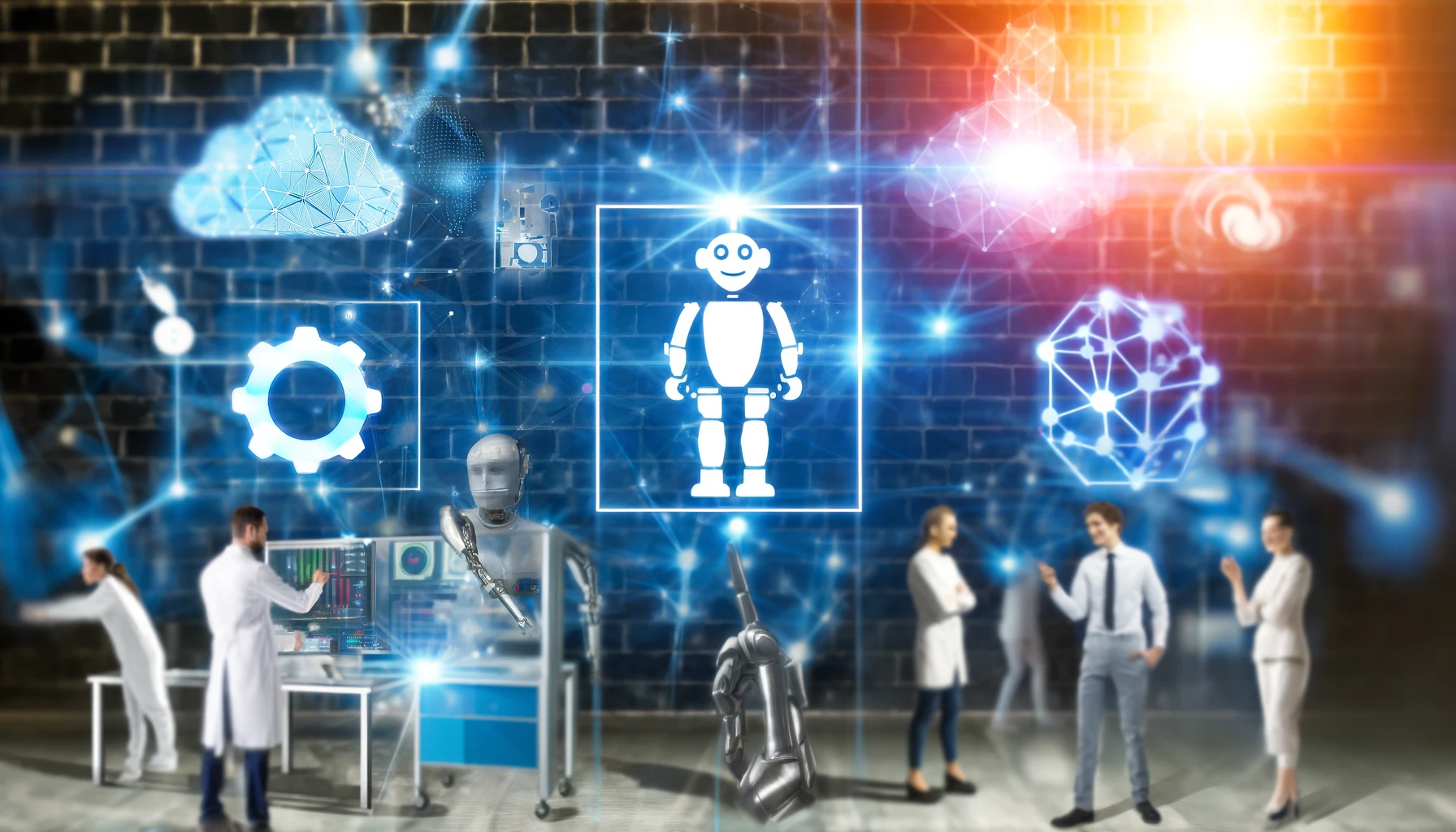The Role of Generative AI in Shaping the Future of Digital Transformation
In today's rapidly evolving digital landscape, the potential of generative AI is vast and transformative. As a visionary IT leader with over 30 years of experience, I have seen firsthand how advanced technologies can revolutionise industries and drive innovation. Generative AI, a subset of artificial intelligence that involves creating new data based on existing patterns, is poised to enhance creativity, automate complex processes, and fundamentally reshape various sectors. This article explores the potential applications of generative AI, highlights successful implementations, and envisions future possibilities, emphasising its transformative power.
Enhancing Creativity Across Industries
Generative AI can augment human creativity, offering new avenues for innovation across various industries. By leveraging algorithms that can generate novel ideas, designs, and solutions, businesses can push the boundaries of what is possible.
Key Applications:
- Design and Manufacturing:
- Product Design:
Generative AI can assist in creating innovative product designs by analysing existing models and generating new, optimised versions. This speeds up the design process and leads to more efficient and cost-effective products.
- Manufacturing Processes:
AI-driven generative models can optimise manufacturing processes by identifying the most efficient methods and reducing waste.
- Content Creation:
- Media and Entertainment:
In the media industry, generative AI creates realistic animations, music compositions, and even entire scripts. This technology enables creators to produce high-quality content more efficiently.
- Marketing and Advertising:
Generative AI can generate personalised marketing content tailored to individual customer preferences, enhancing engagement and conversion rates.
- Architecture and Urban Planning:
- Architectural Design:
Architects use generative AI to design innovative and sustainable buildings. AI can analyse various design parameters to create structures that are not only aesthetically pleasing but also environmentally friendly.
- Urban Planning:
In urban planning, generative AI helps create efficient city layouts by analysing traffic patterns, population density, and other factors to optimise space usage and improve livability.
Automating Complex Processes
One of the most significant advantages of generative AI is its ability to automate complex processes, reducing human error and increasing efficiency. This capability is particularly beneficial in industries where precision and accuracy are paramount.
Key Applications:
- Healthcare:
- Drug Discovery:
Generative AI revolutionises drug discovery by predicting molecular structures and generating potential drug candidates. This accelerates the development process and reduces costs.
- Medical Imaging:
AI algorithms can analyse medical images to detect anomalies and assist in diagnosis, improving accuracy and enabling early intervention.
- Finance:
- Risk Management:
In finance, generative AI can simulate various market scenarios to assess risks and develop mitigation strategies. This proactive approach enhances financial stability.
- Fraud Detection:
AI models can analyse transaction patterns to identify and prevent fraudulent activities, safeguarding financial institutions and their customers.
- Supply Chain Management:
- Demand Forecasting:
Generative AI can predict demand patterns by analysing historical data and market trends. This helps businesses optimise inventory levels and reduce costs.
- Logistics Optimisation:
AI-driven models can optimise logistics by generating efficient routing plans, reducing transportation costs, and minimising delivery times.
Successful Implementations
Several industries have already begun to harness the power of generative AI, demonstrating its potential to drive significant improvements and innovation.
Key Examples:
- Automotive Industry:
- A leading MNC Automotive Company:
The company uses generative design to create lighter, more efficient vehicle components. By leveraging AI, the company can produce parts that meet stringent performance standards while reducing material usage.
- Fashion Industry:
- A leading Sports Brand:
The Brand uses generative AI to design innovative footwear. The AI-driven design process enables the company to create superior performance and comfort products.
- Healthcare Industry:
- A leading Healthcare brand:
The Brand has developed AI models that can predict acute kidney injury up to 48 hours before it occurs. This early warning system allows healthcare providers to take preventive measures, improving patient outcomes.
Future Possibilities
The potential of generative AI extends far beyond current applications. As technology evolves, new possibilities will emerge, further transforming industries and enhancing human capabilities.
Critical Areas for Future Development:
- Personalised Medicine:
Generative AI could revolutionise healthcare by enabling the creation of personalised treatment plans based on an individual's genetic makeup, lifestyle, and medical history. This tailored approach would improve treatment efficacy and patient outcomes.
- Advanced Robotics:
AI-driven generative models could lead to the development of advanced robotics capable of performing complex tasks with precision and efficiency. These robots could be used in various sectors, from manufacturing to healthcare, enhancing productivity and safety.
- Climate Change Mitigation:
Generative AI could be crucial in addressing climate change by generating innovative solutions for reducing carbon emissions, optimising energy usage, and developing sustainable technologies. This would help mitigate the impact of climate change and promote environmental sustainability.
- Education:
In education, generative AI could create personalised learning experiences tailored to individual student needs and learning styles. This would enhance educational outcomes and make learning more accessible and engaging.
Conclusion
Generative AI is a transformative force with the potential to reshape industries, enhance creativity, and automate complex processes. By leveraging this technology, businesses can unlock new opportunities for innovation and growth, driving significant improvements in efficiency and productivity. As we continue to explore the possibilities of generative AI, we must adopt a forward-looking and strategic approach, ensuring that we harness its power responsibly and ethically.
In my 30 years of experience as a CIO and IT leader, I have seen the incredible impact that advanced technologies can have on businesses and industries. By championing the adoption of generative AI and fostering an inclusive culture that embraces innovation, we can create a future where technology and human ingenuity go hand in hand, driving progress and transforming the world.
Connect with me to learn more about how visionary IT leadership can dramatically enhance your organisation's performance in the digital age. Together, we can navigate the challenges and opportunities presented by generative AI, creating a future where technology empowers us to achieve greater heights.
